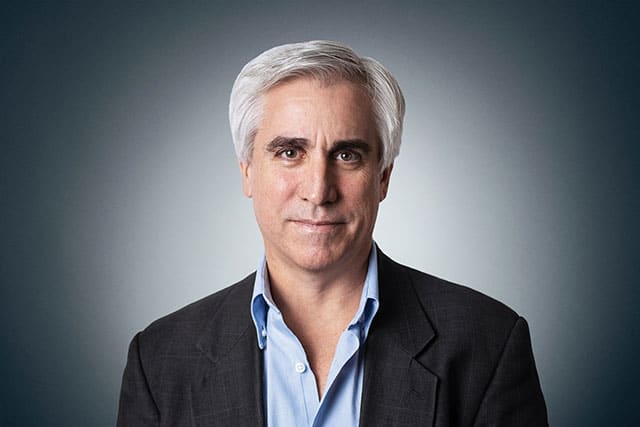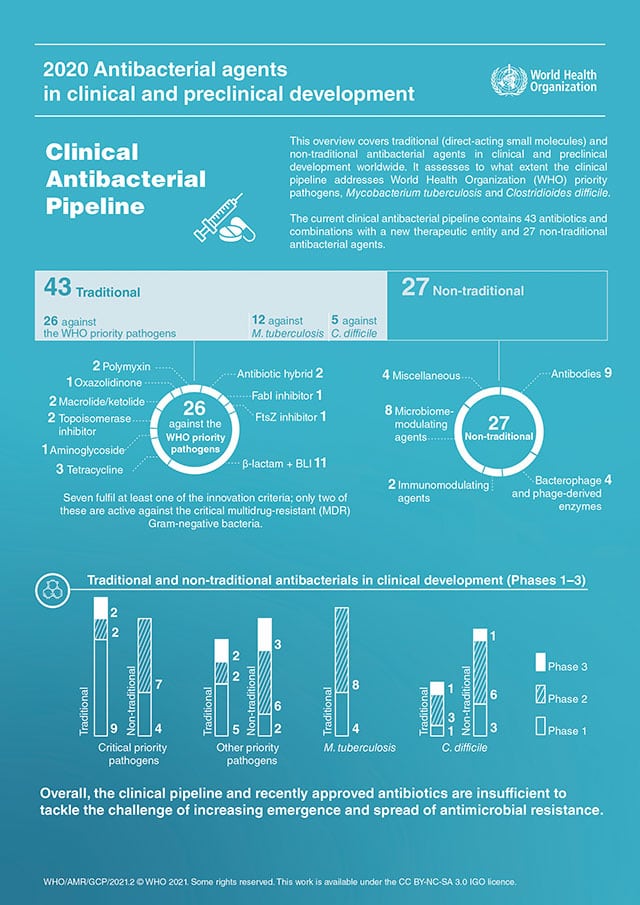
The COVID-19 pandemic has made it painfully clear how unprepared we have been for a large-scale, global health crisis.
A year later, with vaccine approvals and distribution underway, hope is on the horizon. However, we cannot be complacent when it comes to another rising infectious threat: antimicrobial resistance, or AMR. Just like we were before COVID-19, we do not have the tools we need to prevent and treat these infections.
AMR is a slow-burning global crisis that, over the long term, has the potential to be even more catastrophic than COVID-19. Although only an ember right now, it is growing rapidly and, according to the World Health Organization (WHO), by 2050 AMR could claim as many as 10 million lives per year.
That’s because antibiotic resistance undermines nearly every aspect of modern medicine – from neonatal care, to basic surgeries, to cancer chemotherapy. As a society, we often take antibiotics for granted, but without them, any scrape or incision from the most minor surgery could prove deadly.
The rise of superbugs resistant to antibiotics threatens our entire health system. While the existence of the new coronavirus was not known until January 2020, AMR is a threat we have known about for years. It is a predictable and preventable crisis, and we have an opportunity to act now. There is an urgent need to develop next generation antibiotics to protect global health.
Drug-resistant pathogens will always develop; we will need a steady stream of new antibiotics to fight evolving superbugs. It is this reality that has driven my lifelong work in the AMR space; first leading licensing efforts globally for Pharmacia & Upjohn’s discovery infectious disease therapeutic area, then as CEO of antibiotic-focused biotech SelectX Pharmaceuticals, followed by venture capital investing supporting antibiotic companies, as Chairman of the board of antibiotic-focused Macrolide Pharmaceuticals, and now as CEO of the AMR Action Fund, which aims to strengthen and accelerate the antibiotic pipeline.
Urgent action is needed because the pipeline is broken. Today, there are too few antibiotics in clinical development to meet current and anticipated needs, according to a recent assessment by the Pew Charitable Trusts.
The good news is that the early-stage antibiotic pipeline includes many innovative compounds, thanks to significant interventions such as CARB-X and the Novo REPAIR Impact Fund. The problem now is getting these compounds through the later stages of development and then to the patients who need them. Many biotech companies developing new antibiotics are simply unable to find financing for clinical development.
Despite the huge societal costs of AMR, there is no viable market for new antibiotics once they are approved. New antibiotics are used sparingly to preserve effectiveness and slow the development of further resistance. While this makes sense for public health, it doesn’t support the level of investment needed to maintain a robust antibiotic pipeline – which has contributed to our current predicament. There is broad academic and policy consensus that new approaches to valuing and reimbursing antibiotics, including novel incentives that reward successful delivery of new antibiotics, are urgently needed to strengthen the pipeline.
However, although AMR has been on the agenda of politicians for years, there has been little action. In the absence of these necessary policy reforms, a group of pharmaceutical companies, global charitable organisations and development banks, led by the International Federation of Pharmaceutical Manufacturers and Associations (IFPMA), have stepped up to help safeguard the vital resource of effective antibiotics.
Together, in a move of collaboration I have never seen in my career, over 20 leading pharmaceutical companies formed the AMR Action Fund, which has since been joined by the Boehringer Ingelheim Foundation, the European Investment Bank and the Wellcome Trust. The AMR Action Fund is the largest public-private partnership supporting the development of antibiotics and US$1bn was raised to create the Fund.
This show of global and multi-stakeholder support is encouraging, and I’m proud to have the opportunity to lead the AMR Action Fund in its goal to bring two to four new antibiotics to market by 2030. We will do this not only through investment of the US$1bn, but also through technical support across all stages of development via access to the deep expertise and resources of our large pharmaceutical companies.
This combination will be critical to strengthening and accelerating antibiotic development. However, the AMR Action Fund is not the permanent solution to the AMR threat. Urgent action is needed from policymakers to create an environment that supports sustainable long-term investment in antibiotic R&D.
The AMR Action Fund will provide a bridge for innovative antibiotic candidates in the pipeline through the most challenging later stages of drug development, ultimately giving governments the time to put in place policies that better recognise the value of novel antibiotics and enable appropriate patient access. Market-based reforms, including reimbursement reform and new pull incentives, are needed to create an environment where antibiotic R&D can flourish for decades to come.
The AMR Action Fund is a broad alliance of industry and non-industry stakeholders responding to a pressing global public health crisis. It will invest in smaller biotech companies focused on developing new antibiotics that address the highest priority public health needs, make a significant difference in clinical practice and save lives.
But the pipeline is on the verge of collapse and the AMR Action Fund is only a partial solution. We all have a role to play and now is the time for policymakers to take action to help prevent another COVID-19. AMR is one of the greatest societal threats of our time and I have dedicated my career to working toward a solution. Only through collaboration will we safeguard our future and prevent an AMR crisis.





